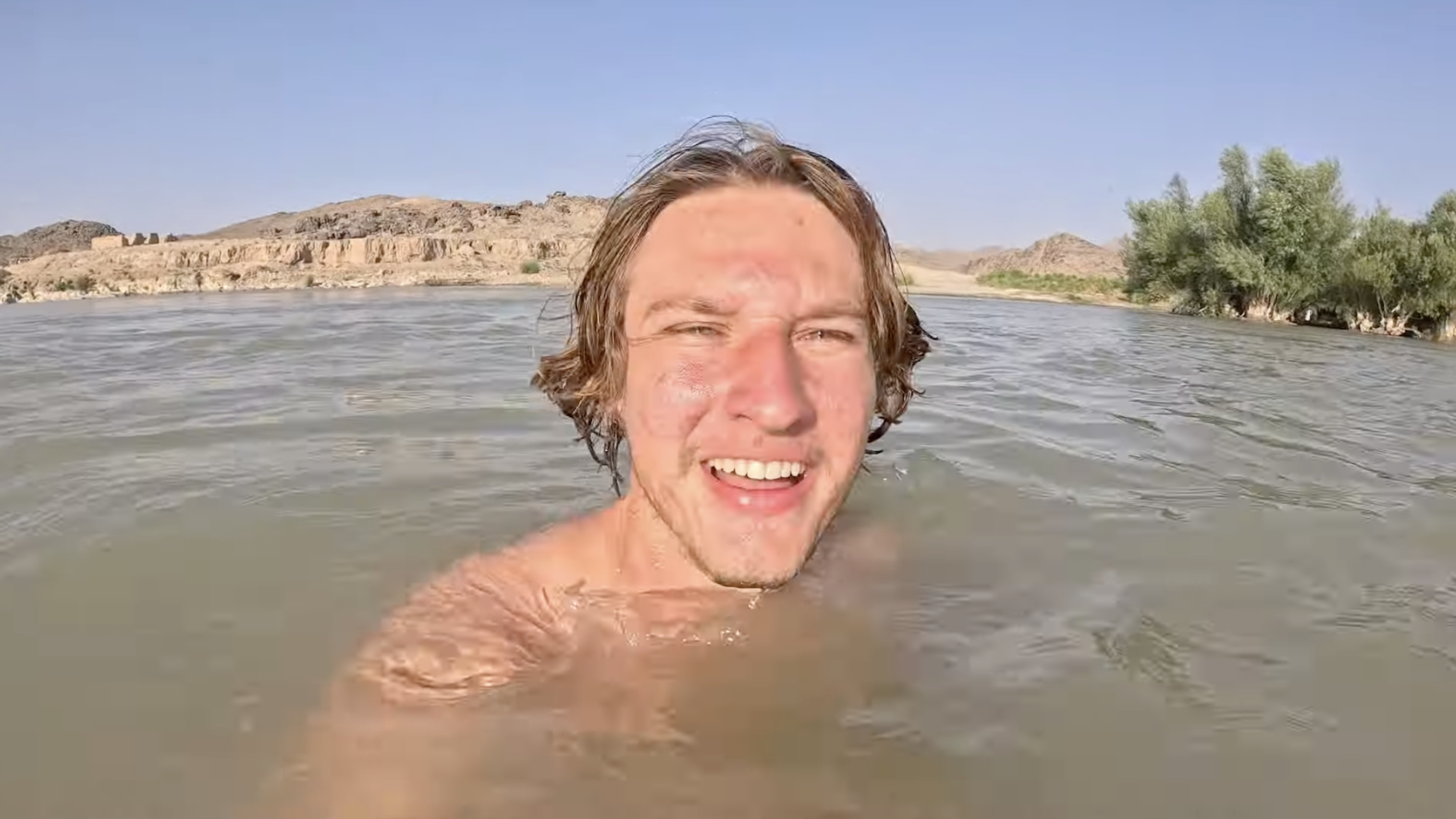An aspiring YouTube influencer and self-described “danger tourist” was arrested by authorities in India after allegedly attempting to contact one of the world’s last uncontacted Indigenous tribes. The 24-year-old US national Mykhailo Viktorovych Polyakov was taken into custody on March 29 at 10am local time after returning from his overnight journey to North Sentinel Island, home to an estimated 100 Sentinelese inhabitants. His “meticulously planned” trip involved multiple scouting excursions and required sailing across 23 miles of notoriously dangerous Indian Ocean waters in an inflatable raft he modified with an outboard motor.
Authorities said Polyakov then spent an hour floating offshore in his boat, blowing a whistle in an attempt to signal the Sentinelese. Afterwards, he landed on the beach for about five minutes to record footage on a GoPro camera, collect souvenir sand samples, and leave a coconut and a can of Coke as gifts. No one ever emerged to meet him, but this was potentially to Polyakov’s benefit. He was at risk of becoming the fourth confirmed intruder killed by the Sentinelese over the past two decades.
An estimated 100–200 uncontacted Indigenous tribes are believed to still exist around the world, arguably the most famous of which are the internationally protected, voluntarily isolated Sentinelese people. Around 100 inhabitants split across three main groups are thought to remain on North Sentinel Island, located about 740 miles from the Indian mainland. Part of the broader Andamenese people, the Sentinelese have lived on the Manhattan-sized island for as long as 55,000 years.
While reports of Sentinelese violence occasionally veer into sensationalism, it’s still illegal to attempt meeting them. It also can be dangerous—and not just for the visitors. History and immunology has shown repeatedly that communities in isolation from one another are extremely vulnerable to unfamiliar pathogens.
“It’s very well known by now that uncontacted peoples have no immunity to common outside diseases like flu or measles, which could completely wipe them out,” Caroline Pearce, director of the nonprofit advocacy group Survival International, said in a statement.
As such, any interactions are done when only necessary, with care, and with respect. Earlier this year, a member of an uncontacted Amazonian tribe voluntarily visited the rural Brazilian village of Bela Rosa. After contacting authorities, experts from Brazil’s Fundação Nacional dos Povos Indígenas (National Foundation of Indigenous Peoples) arrived to escort him to a nearby hospital in order to ensure his health and safety.
“It beggars belief that someone could be that reckless and idiotic,” Pearce continued on Wednesday. “This person’s actions not only endangered his own life, they put the lives of the entire Sentinelese tribe at risk.”
Despite current restrictions on interactions, uncontacted tribes around the world face increased threats from encroaching business interests, deforestation, and land-grabbing. Although she commended Indian authorities’ apprehension of Polyakov, Pearce explained the nation’s government poses problems for its own isolated Indigenous communities.
“The uncontacted Shompen of Great Nicobar Island, not far from North Sentinel, will be wiped out if India goes ahead with its plan to transform their island into ‘the Hong Kong of India,’” argued Pearce, referring to controversial plans to construct a multibillion-dollar, 650,000-resident town from scratch that includes a shipping port, international airport, and power plant.
“The common factor in all these cases is governments’ refusal to abide by international law and recognize and protect uncontacted peoples’ territories.”
It’s currently unclear what will ultimately happen to Petrykov, whose most recent YouTube uploads document a trip to Taliban-governed regions of Afghanistan. Not only is it illegal to contact isolated tribes in India, but it’s also against the law to photograph or record videos of them. If found guilty, Poryakov’s latest danger tourist excursion could result in a 3–5 year prison sentence.


